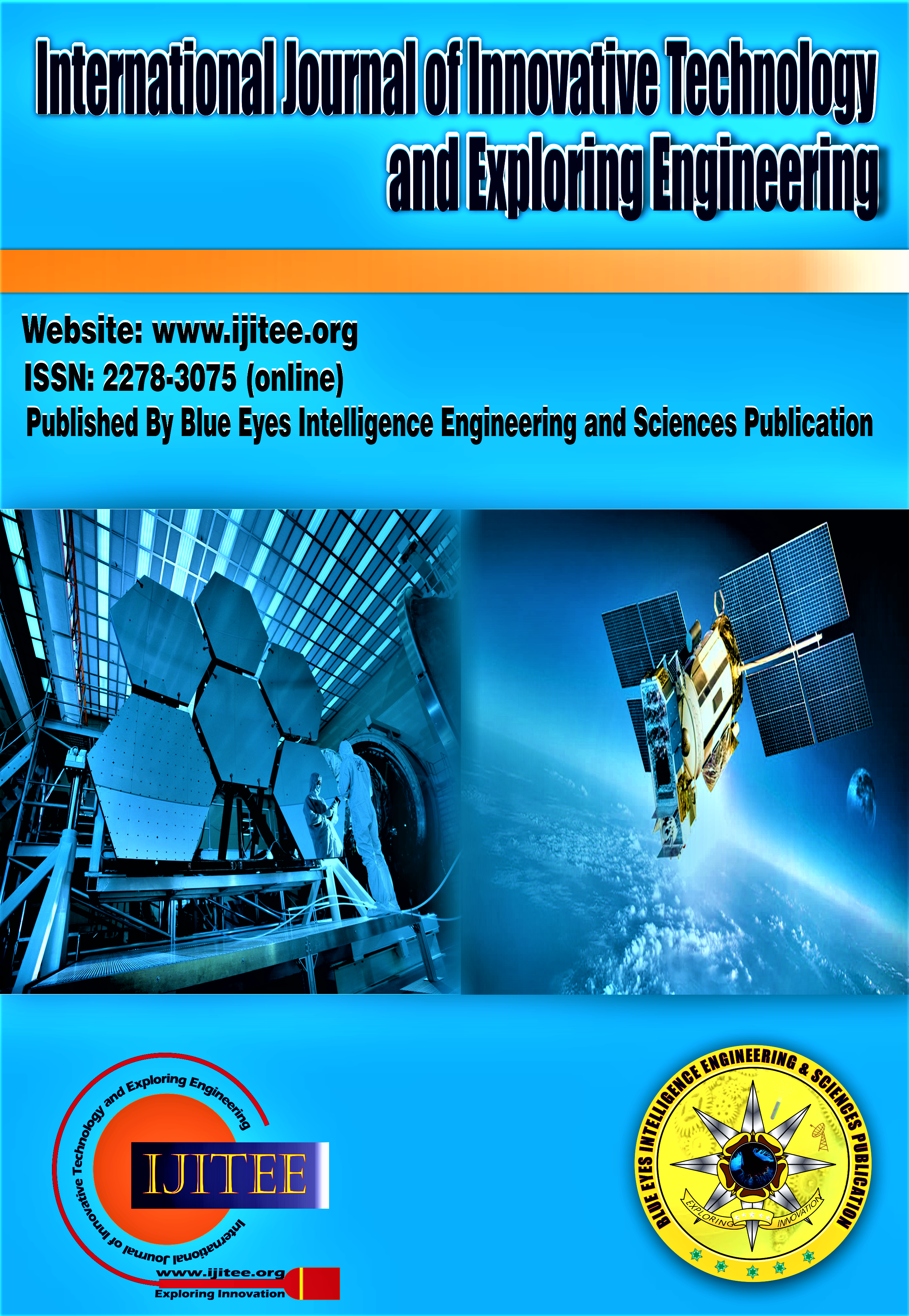Quantum Circuit Optimization of Arithmetic Circuits using ZX Calculus
Main Article Content
Abstract
Quantum computing is an emerging technology in which quantum mechanical properties are suitably utilized to perform certain compute-intensive operations faster than classical computers. Quantum algorithms are designed as a combination of quantum circuits that each require a large number of quantum gates, which is a challenge considering the limited number of qubit resources available in quantum computing systems. Our work proposes a technique to optimize quantum arithmetic algorithms by reducing the hardware resources and the number of qubits based on ZX calculus. We have utilized ZX calculus rewrite rules for the optimization of fault-tolerant quantum multiplier circuits where we are able to achieve a significant reduction in the number of ancilla bits and T-gates as compared to the originally required numbers to achieve fault-tolerance. Our work is the first step in the series of arithmetic circuit optimization using graphicalrewrite tools and it pavesthe way for advancing the optimization of various complex quantum circuits and establishing the potential for new applications of the same.
Downloads
Article Details
Section

This work is licensed under a Creative Commons Attribution-NonCommercial-NoDerivatives 4.0 International License.
How to Cite
References
Barenco, A., Bennett, C., Cleve, R., Divincenzo, D.: N. margolus, p. shor, t. Sleator, J. A. Smolin, and H. Weinfurter, “Elementary Gates for Quantum Computation,” Phys. Rev. A 52, 3457–3467 (1995) https://doi.org/10.1103/PhysRevA.52.3457
Beauregard, S.: Circuit for shor’s algorithm using 2n+ 3 qubits. arXiv preprint quant-ph/0205095 (2002) https://doi.org/10.26421/QIC3.2-8
Shende, V.V., Markov, I.L., Bullock, S.S.: Minimal universal two-qubit controllednot-based circuits. Physical Review A 69(6), 062321 (2004) https://doi.org/10.1103/PhysRevA.69.062321
Maslov, D.: Linear depth stabilizer and quantum fourier transformation circuits with no auxiliary qubits in finite-neighbor quantum architectures. Physical Review A 76(5), 052310 (2007) https://doi.org/10.1103/PhysRevA.76.052310
Paler, A., Polian, I., Nemoto, K., Devitt, S.J.: Fault-tolerant, high-level quantum circuits: form, compilation and description. Quantum Science and Technology 2(2), 025003 (2017) https://doi.org/10.1088/2058-9565/aa66eb
Munoz-Coreas, E., Thapliyal, H.: Quantum circuit design of a t-count optimized integer multiplier. IEEE Transactions on Computers 68(5), 729–739 (2018) https://doi.org/10.1109/TC.2018.2882774
Jayashree, H., Thapliyal, H., Arabnia, H.R., Agrawal, V.K.: Ancilla-input and garbage-output optimized design of a reversible quantum integer multiplier. The Journal of Supercomputing 72, 1477–1493 (2016) https://doi.org/10.1007/s11227-016-1676-0
Duncan, R., Kissinger, A., Perdrix, S., Van De Wetering, J.: Graph-theoretic simplification of quantum circuits with the zx-calculus. Quantum 4, 279 (2020) https://doi.org/10.22331/q-2020-06-04-279
Wecker, D., Svore, K.M.: Liqui—¿: A software design architecture and domainspecific language for quantum computing. arXiv preprint arXiv:1402.4467 (2014)
Gottesman, D.: The heisenberg representation of quantum computers. arXiv preprint quant-ph/9807006 (1998)
Aaronson, S., Gottesman, D.: Improved simulation of stabilizer circuits. Physical Review A 70(5), 052328 (2004) https://doi.org/10.1103/PhysRevA.70.052328
Amy, M., Maslov, D., Mosca, M., Roetteler, M.: A meet-in-the-middle algorithm for fast synthesis of depth-optimal quantum circuits. IEEE Transactions on Computer-Aided Design of Integrated Circuits and Systems 32(6), 818–830 (2013) https://doi.org/10.1109/TCAD.2013.2244643
Kissinger, A., Wetering, J.: Simulating quantum circuits with zx-calculus reduced stabiliser decompositions. Quantum Science and Technology 7(4), 044001 (2022) https://doi.org/10.1088/2058-9565/ac5d20
Wetering, J.: Zx-calculus for the working quantum computer scientist. arXiv 13 preprint arXiv:2012.13966 (2020).
Malviya, A. K., & Tiwari, N. (2019). Quantum Algorithm to Construct Linear Approximation of an S-Box. In International Journal of Recent Technology and Engineering (IJRTE) (Vol. 8, Issue 4, pp. 9096–9099). https://doi.org/10.35940/ijrte.d4608.118419
A Genetic Improved Quantum Cryptography Model to Optimize Network Communication. (2019). In International Journal of Innovative Technology and Exploring Engineering (Vol. 8, Issue 9S, pp. 256–259). https://doi.org/10.35940/ijitee.i1040.0789s19
Caporali, R. P. L. (2023). A Statistic Method for the Prediction of the Succession of Bear and Bull Stock Market. In International Journal of Basic Sciences and Applied Computing (Vol. 9, Issue 6, pp. 1–7). https://doi.org/10.35940/ijbsac.f0482.029623
Islam, M., Mohamed, S. F., Mahmud, S. H., M, A. K. A., & Saeed, K. A. (2020). Towards A Framework for Development of Operational and Maintenance Cost Model of Highway Project in Malaysia. In International Journal of Management and Humanities (Vol. 4, Issue 5, pp. 89–95). https://doi.org/10.35940/ijmh.e0530.014520
Radhamani, V., & Dalin, G. (2019). Significance of Artificial Intelligence and Machine Learning Techniques in Smart Cloud Computing: A Review. In International Journal of Soft Computing and Engineering (Vol. 9, Issue 3, pp. 1–7). https://doi.org/10.35940/ijsce.c3265.099319





